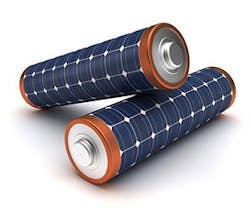Scientific Breakthrough Made in Alternative Battery Power Storage
A historic breakthrough made at the University of Surrey and Augmented Optics Ltd, in collaboration with the University of Bristol, has developed potentially transformational technology which has potential to greatly increase the capabilities of appliances that have previously relied on mere battery power to work.
This development by Augmented Optics Ltd, could translate into very high energy density super-capacitors making it possible to recharge your mobile phone, laptop or other mobile devices in just a few seconds.
The technology could have a large impact across a number of industries, including facility management. Increased battery storage to these lengths would be instrumental in the future of powering buildings with power grid networks.
The technology was adapted from the principles used to make soft contact lenses, which Dr. Donald Highgate (of Augmented Optics, and an alumnus of the University of Surrey) developed following his postgraduate studies at Surrey 40 years ago. Supercapacitors, an alternative power source to batteries, store energy using electrodes and electrolytes and both charge and deliver energy quickly, unlike conventional batteries which do so in a much slower, more sustained way. Supercapacitors have the ability to charge and discharge rapidly over very large numbers of cycles. However, because of their poor energy density per kilogram (approximately just one twentieth of existing battery technology), they have, until now, been unable to compete with conventional battery energy storage in many applications.
"There is a global search for new energy storage technology and this new ultra capacity supercapacitor has the potential to open the door to unimaginably exciting developments," says Dr Brendan Howlin of the University of Surrey.
To read the official press release, please click here.
